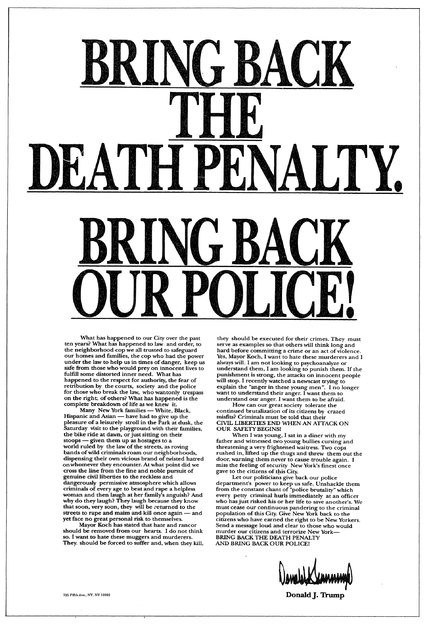During a news conference three days after an alleged neo-Nazi drove his car through a crowd of counter-protesters in Charlottesville, Virginia — killing a 32-year-old woman named Heather Heyer and injuring 19 others — President Trump didn’t rush to condemn the white supremacists who gathered in Charlottesville. Instead, he infamously said there “were very fine people on both sides.”
Trump justified his equivocating response by insisting he was simply being responsible.
“I want to make sure when I make a statement that the statement is correct and there was no way of making a correct statement that early,” Trump told reporters. “I had to see the facts, unlike a lot of reporters… I didn’t know David Duke was there, I wanted to see the facts.”
Fast forward two and a half months, after a Uzbekistan national named Sayfullo Saipov allegedly drove his vehicle onto a bike path in New York City, killing eight and injuring 11 more.
This time, Trump isn’t waiting for the facts to come in. On Wednesday night and Thursday morning, the president went as far as to repeatedly call for Saipov’s execution before his trial has even begun.
NYC terrorist was happy as he asked to hang ISIS flag in his hospital room. He killed 8 people, badly injured 12. SHOULD GET DEATH PENALTY!
— Donald J. Trump (@realDonaldTrump) November 2, 2017
…There is also something appropriate about keeping him in the home of the horrible crime he committed. Should move fast. DEATH PENALTY!
— Donald J. Trump (@realDonaldTrump) November 2, 2017
What explains the difference?
As ThinkProgress detailed after Trump’s relatively muted response to a white man allegedly perpetrating the deadliest mass shooting in modern U.S. history last month in Las Vegas, Trump has a long history of downplaying acts of violence committed by white people — while rushing to draw conclusions and capitalize politically on acts of violence committed by people of color.
This isn’t a new dynamic; in fact, it stretches back decades.
Back in 1989, when a group of four black teens and one Latino teen were on trial for the brutal assault and rape of a jogger in Central Park, Trump called for the teens’ execution in an ad he spent more than $85,000 to place in four newspapers:

There was just one problem — they were innocent. The five teens were convicted thanks to a confession they said was coerced by officers violently interrogating them while they were deprived of food and sleep. In 2002, their innocence was proven once and for all when another man confessed to the crime and his DNA was determined to match a sample found on the victim.
Trump, however, has few regrets. In a statement sent to CNN last year on the occasion of a retrospective about the case, then-candidate Trump didn’t back away from his previous comments.
“They admitted they were guilty,” he wrote. “And the woman, so badly injured, will never be the same.”
